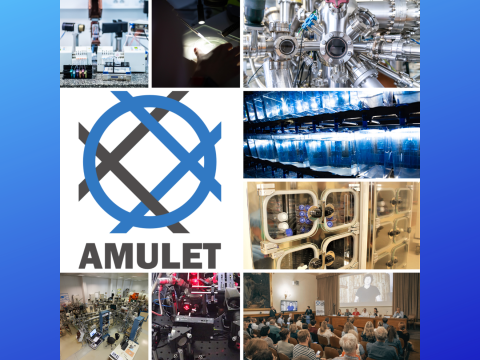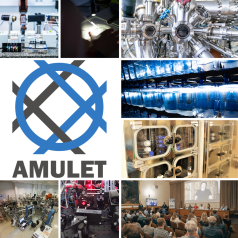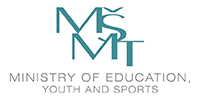On 24 November 2025, the second meeting of the AMULET project’s International Scientific Board (ISAB) took place, chaired by Yukiko Yamada-Takamura and including among its members Konstantin Novoselov, recipient of the 2010 Nobel Prize in Physics. AMULET is one of the most ambitious current projects in the field of multiscale materials development, and its international scientific board plays a key role in the strategic steering of the research. The project is supported by the Operational Programme Jan Amos Komenský of the Czech Ministry of Education, Youth and Sports and co-funded by the EU.
The meeting began with an introductory assessment presented by Martin Kalbáč, head of the AMULET consortium. He noted that the project, involving eight partner institutions and currently at its halfway point, has already fulfilled more than half of its planned indicators. He also emphasized the strong collaboration between the institutions, which is producing high-quality scientific results.
Presentations of Work Package Results
Jana Vepravová Kalbáčová (Faculty of Mathematics and Physics, Charles University) was the first to present, summarizing the progress of Work Package 1 – Advanced MultiScale Materials Engineering. She described the collaboration with partner institutions as “highly fruitful,” contributing to rapid advancement in developing new types of multiscale materials.
Lukasz Cwiklik (J. Heyrovský Institute of Physical Chemistry) presented Work Package 2 – Multidimensional Biointerfacing, where the team focuses on the interaction of biological interfaces with novel materials. This was followed by Jiří Homola (Institute of Photonics and Electronics), who reported on Work Package 3 – Multisensing, aimed at advanced sensor technologies.
Štefan Vajda (J. Heyrovský Institute of Physical Chemistry) then presented Work Package 4 – MultiD Catalysis, dedicated to catalysis across multiple dimensions and scales. The final presentation was delivered by David Sedmidubský (University of Chemistry and Technology, Prague), who discussed progress in Work Package 5 – MultiDevices, focusing on the creation of new types of functional devices built upon results from the other work packages.
Part of the program also included a presentation by Michal Trčka (J. Heyrovský Institute of Physical Chemistry), who introduced the results of the sociological component of the project integrated into Work Package 1, led by the aforementioned Jana Vejpravová Kalbáčová. In his talk, he summarized insights from ongoing interviews with researchers involved in the AMULET project. These interviews led to the organization of a public hearing on Open Science, which took place on 12 September 2025 in the main building of the Czech Academy of Sciences. The event opened up space for discussion on current Open Science practices, its benefits, and its limitations. The conclusions from the hearing later served as the basis for discussions between the Ministry of Education, Youth and Sports and the Council for Research, Development and Innovation, whose representatives also attended the hearing. In this way, the sociological part of the AMULET project contributed to shaping the national debate on the principles of Open Science.
Scientific Achievements and Recommendations
The members of the scientific board showed strong interest in the presented results and asked questions both about technical aspects and future applications.
On behalf of the scientific board, Sebastian Schmidt (Helmholtz-Zentrum Dresden-Rossendorf) expressed congratulations to the entire consortium on their excellent achievements. He emphasized how impressed he was with the research outcomes and encouraged more frequent meetings among the project’s members to facilitate mutual learning and discovery sharing.
Future Plans: Students Meeting
To conclude the meeting, Martin Kalbáč announced that a Students Meeting conference is planned for spring 2026 and that board members are warmly invited to attend. The aim of the conference is to provide students and young researchers with an opportunity to share their experiences, present their results, and establish connections across the AMULET consortium. The event is expected to strengthen the project community and further boost its scientific potential. The council regarded this initiative as highly beneficial.
---
ISAB members: Yukiko Yamada-Takamura (School of Materials Science, Japan Advanced Institute of Science and Technology), Joerg Enderlein (Third Institute of Physics (Biophysics) of the Faculty of Physics of the Georg August University in Göttingen), Norman Goldberg (CEO, tesa SE), Sebastian Schmidt (Scientific Director of the Helmholtz-Zentrum Dresden-Rossendorf), Konstantin Sergejevic Novoselov (National University of Singapore)






















